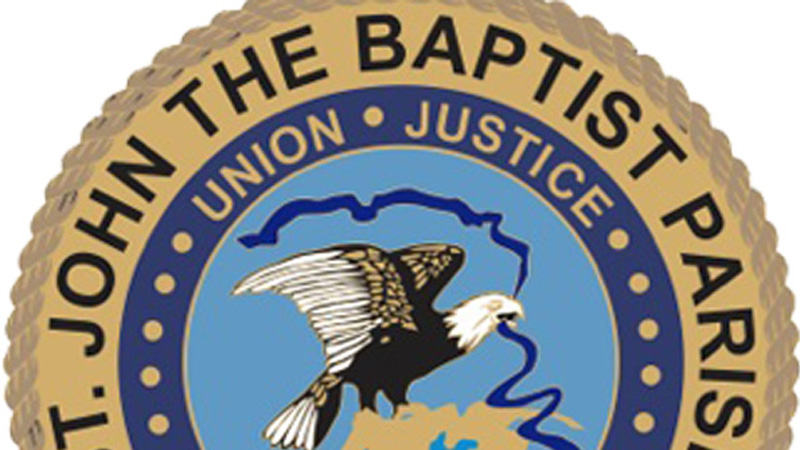Officials question where tax $$$ would end up if St. John leaves Tourist Commission
Published 12:13 am Saturday, March 24, 2018

- The question regarding the legality of St. John the Baptist Parish’s potential withdrawal from the River Parish Tourist Commission will likely be settled by the district attorney’s office.
LAPLACE — The question regarding the legality of St. John the Baptist Parish’s potential withdrawal from the River Parish Tourist Commission will likely be settled by the district attorney’s office.
However, even if the move is approved, such a vote has the potential to have a significant financial impact on a parish already scrambling for funds.
Buddy Boe, who was hired as the commission’s executive director in December, said he received a letter with an attached resolution from St. John Parish requesting an opinion on whether the parish can legally withdraw. Even if Parish Council members vote for withdrawal, the fundamental legal question is does such a move have to be approved through the Louisiana Legislature.
Trending
“There are many people that have thoughts as to how it should happen,” Boe said, adding he believes the best process is for the lawyers to render an opinion.
President Natalie Robottom said it is her understanding that a vote by the Parish Council serves as an expression of their wishes to the region’s legislators.
“However legislative action is required to amend the statute creating the River Parish Tourist Commission,” Robottom said.
Also in play appears to be the fate of the hotel/motel tax collected in St. John Parish should it pull out of the commission. Currently, the taxes are collected by the respective school boards for each parish and then sent to the state, which in turns doles it to the commission for operating expenses.
Also to be sort out is if the taxes collected in St. John would remain in the parish or continue to be funneled to the state.
Boe said his understanding is the funds would remain with the commission, but added that is why additional legal research is needed.
Trending
“The taxes collected are an occupancy tax provided for by a state statue,” he said. “Our funds never pass through the parish. They are not in the St. John Parish general fund.”
Although Robottom said she is not familiar with the entire process, she believes the money would remain with the parish.
She said those funds would likely be used by the parish to form its own tourist commission, which could “dedicate all of their time and funding to promote St. John and St. John attractions.”
One other potential financial impact for the parish would be the operation of the St. John Community Center, which is managed by the commission in exchange for free rent. Boe noted his staff manages the building, books events and serves as a liaison to the film industry, which is the biggest revenue producer for the center.
He also questions the legality of the arrangement, saying the statute regulating the commission prohibits his office to manage a building that competes with the private sector. He said every time his staff books a meeting or a wedding, they are essentially competing with every hotel in the region that could potentially host that same event.
“If the commission goes away, St. John now has a building to manage and that’s an additional cost,” he said.
In that case, Robottom said her office would have to determine if the building would require a full-time or part-time employee “or is it worth contracting for those services.”
For the past several Parish Council meetings, members Larry Sorapuru Jr., Kurt Becnel, Lennix Madere Jr., Marvin Perrilloux and Larry Snyder have been vocal in calling for the parish to withdraw from the commission, citing a lack of ethics and what they believe is a lack of adequate representation.
The council’s four other members — Jaclyn Hotard, Julia Remondet, Michael Wright and Thomas Malik — have been equally passionate in their defense of the commission.
“I knew some of the stakeholders were displeased with the commission but I was surprised by the number expressing their displeasure,” Robottom said.
Councilman Larry Sorapuru has championed the campaign for withdrawal, but neither he nor other council members have offered evidence of any ethical misconduct or how they believe the parish is not receiving fair representation.
Boe said he has asked for specific instances of any ethical violations but has received none and has been told this is what the council members “are hearing.”
He acknowledged some past issues involving the commission but added those are being addressed and that he is soliciting input from all three River Region parish councils as to what has to improve.
He also pointed out that several commission employees are St. John residents, including communications director Jo Banner and the receptionist.
A recurring complaint is that even though St. John collects the most in occupancy taxes, it receives the least representation. However, Boe pointed out the commission’s mission is to promote the region as a whole entity. He said tourists do not know parish boundaries, and that it exists to present visitors with an entire experience package up and down the Mississippi River.
“That collective foundation is obviously the history that exists from all things from the river, the food, people that moved here, the plantations that were the foundation of the economy at one time, the outdoors through the swamps, and the three major lakes that touch the parish,” he said “Should more be being said about individual parts of our region? Absolutely.”
“There were times when other parishes felt they were not being represented,” he added. “I think that’s an inherent tension that exists in regional cooperations, no matter what it is. But I would argue we are stronger as a region.”
Joy Banner, director of communications for Whitney Plantation and twin sister of Jo Banner, also claims St. John is being underrepresented. A year ago the occupancy tax yielded $225,000 in St. John, the largest of any of the three parishes.
But Boe said that as recently as three years ago, St. Charles Parish’s total was the highest, and that through the past 10 years the parish collecting the largest amount has fluctuated.
“I would argue that every minute spent (marketing) the St. John center is time not promoting St. Charles and St. James,” he said. “It goes both ways.”
Boe said he would take up the matter with his board at its April meeting.
— By Richard Meek






